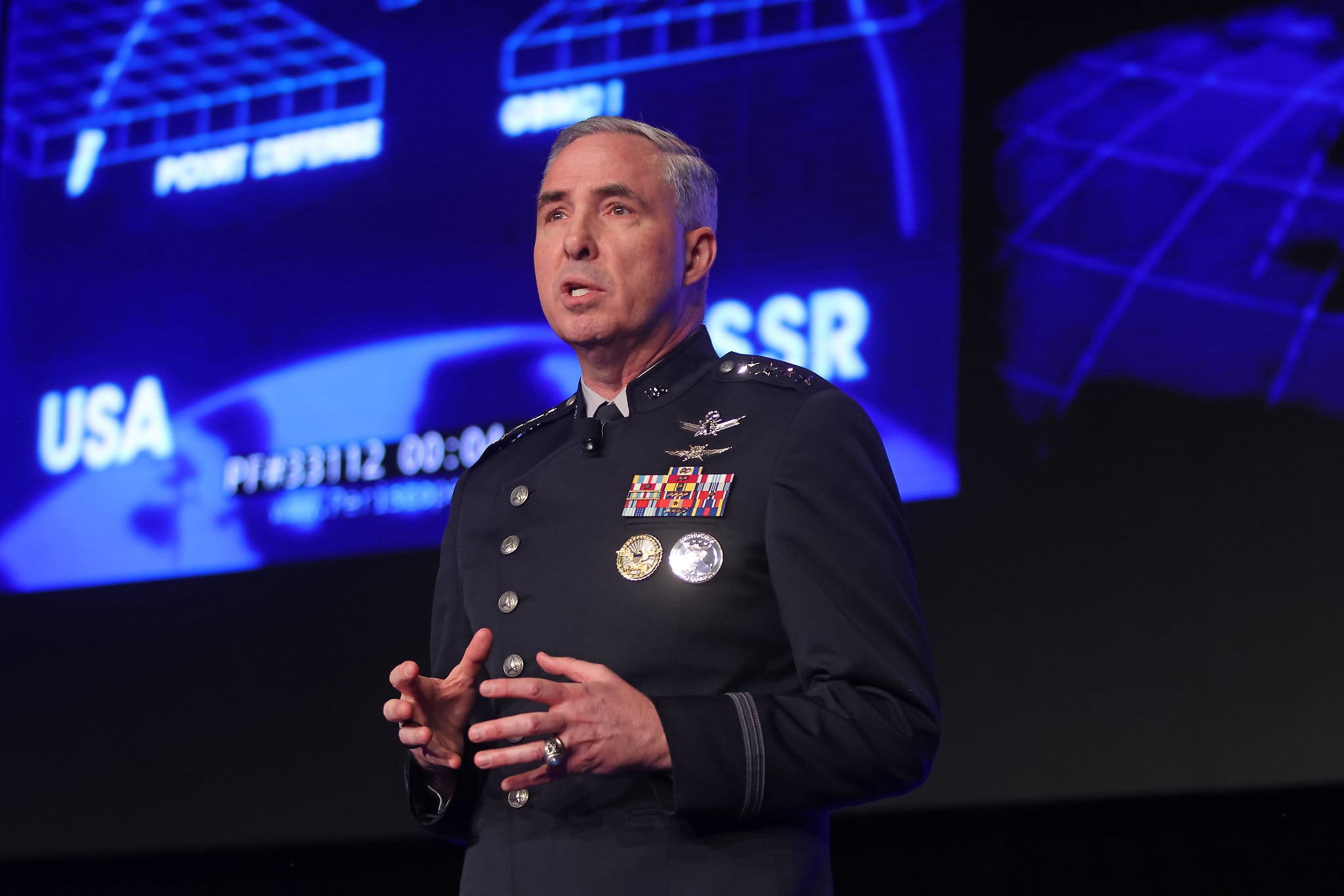Thomas Neff became project director of the Army's Computer Hardware Enterprise Software and Solutions (CHESS) program in July 2014. As the Army's one-stop shop for commercial IT, CHESS manages more than $30 billion worth of contracts. At the top on Neff's "to do" list is awarding two mega-contracts: Information Technology Enterprise Solutions 3 Services (ITES-3S), an IT services contract valued at roughly $12 billion; and Army Desktop and Mobile Computing 3 (ADMC-3), an estimated $5 billion contract for information technology and management, scientific and technical consulting. Neff discussed the status of these projects with Federal Times Contributing Editor Steve Watkins.
Note: This interview was conducted before the ITES 3S draft RFP was issued on May 20, 2015.
What new initiatives are you planning for this year?
Two major [requests for proposals] will get released. The ITES-3S RFP draft and industry day should be late third quarter of this fiscal year and the final RFP out in the first quarter of next fiscal year. And I think a similar timeline for ADMC-3 as well.
Any other goals for 2015?
We put a lot of energy into getting permission to extend the performance on ITES-2S. That was originally 10 years of performance, $20 billion of ceiling, 16 primes and just south of $7 billion of ceiling left. So, it's been a successful vehicle for the Army. We went up and made the argument to the Army acquisition executive [Assistant Secretary of the Army for Acquisition, Logistics and Technology Heidi Shyu] that we want to extend that vehicle. It's been highly successful, there's plenty of ceiling left, task holders would be competitively awarded. So, we're obviously, on behalf of our customers, happy that she approved that.
Since I got here almost nine months ago I bet we've had 150 meetings with industry on 3S, a lot of them small businesses. They're encouraged, obviously, that the plan for 3S is a significant amount of planned awards for small businesses, so it's not two separate vehicles. The Army's small business office was very interested in promoting the ability of small businesses ... to stay in business and grow... and IT services is an innovative and cost-effective way of delivering a capability. I think maybe one of the major things that this office owes to the community of businesses that support the Army is the ability for small businesses to compete on a level playing field and win work as a prime rather than relying on subcontracting to large systems integrators.
But why not have just a dedicated ITES-3S small business contract?
We have ITES Small Business [ITS-SB]. We just have not seen the revenue on that that was projected. For one thing, the scope of ITS-SB is just not as broad as ITES-2S. So now we're going to have on a single vehicle very broad scope, common terms and conditions allowing smalls to compete for very large task orders or for contracting activities that have made a decision that it makes sense to do set-asides for small business using a single vehicle. So we're excited about that. We'd like to think that one of the value propositions of a CHESS contract is to help small businesses graduate and move into mid-tier large businesses. The best news story that we could deliver to that community is every single small business that wins an ITES-3S award, when that contract expires and it comes up for recompete, that all of those smalls have graduated, their revenue has grown, and hopefully this contract can help them do that.
What are the key metrics that you use to assess performance and success of your programs?
It probably would depend on whether we're talking hardware or software or services contract. I know that there are some that look at metrics particularly in multi-award [indefinite delivery, indefinite quantity]IDIQ services contracts and they'd like to see all the primes respond to a higher volume of task quarter availability. I don't know if I share that opinion. You certainly wouldn't want a small number of your awardees replying to and winning all the competitions, but I don't think you're going to see that. I mean, a company that has made an investment in competing for a large contract and winning it, I think they're going to be aggressive in going after task order competitions. And the customer for task orders [needs to be] transparent with industry during their market research phase so that contractors understand their requirement.
I don't know if there's a sweet spot, but two to three really good proposals is far better to a program for a program manager to receive and evaluate. If that's what they get, it's almost a no-lose situation for the customer. They've got two or three great technical offerings at reasonable prices. The last thing you want is seven or eight, of which four or five are average at best but you still have to evaluate and document those. Not everybody shares that [view]. And as much as the White House and folks within OSD [Office of Secretary of Defense] talk about the importance of talking to industry prior to even starting on your draft RFP, I still see a lot of hesitancy in government folks in wanting to or being comfortable in talking to industry up front.
Why do you think that's the case?
I don't know. I remember when I first started doing IT acquisition as a captain. The common thing you heard around an office was, 'If you say one thing to one company you must say the same thing to every single company.' Is that true if you're doing an actual contract negotiation? Yes. But not in the market research phase. One of the reasons why the federal government often gets underwhelming results from their IT investments is they don't really tell industry what they need and what's important to them, they're just afraid to do so. Then maybe they figure out 'Well I'll figure it out post-award.' It shouldn't surprise anyone what your results are going to probably be.
So, you mentioned you're expecting the draft RFP for ITES-3S soon and the final RFP shortly after. Final RFP will be first quarter of next fiscal year?
We don't want to release the ITES-3S final RFP during the fourth quarter [of fiscal 2015] because I really want those companies focusing on answering task orders [on ITES-2S] for the Army that have existing dollars. I'm sure that quite a few of our 2S incumbents are going to bid on 3S. So, anecdotally, do I want those 2S incumbents answering with really good proposals to 2S requirements that may have some expiring FY15 dollars and a mission associated with them? [The ITES-3S RFP] is where I want their focus of the first quarter of the fiscal year. Money has not usually been appropriated yet from Congress; so that's when you want industry answering an IDIQ procurement. And that would align with what we're trying to do with ADMC-3 as well.
My commitment to industry, given that we've gotten an extension on 2S, is we don't want to release the 3S final RFP during the fourth quarter [of fiscal 2015] because I really want those companies focusing on answering task orders for the Army that have existing dollars.
And what's your time frame for expected award?
It will be dependent upon the number of offers we get. We are going to use an advisory multi-step process to help — and I think that will help small businesses make a business decision on whether they want to propose as a prime or be on somebody's team. Theoretically that should help — it's not that we're trying to drive down the number of proposals. What we want to do is make sure that the proposals that we do get are of very high quality. I think we also owe it to the small business community to allow them to get some objective feedback outside of the formal source selection process of whether we think they're going to be highly competitive.
Based upon the number of companies that have been in here talking to us, I would not be surprised if we get well over 100 proposals on 3S. So, what I've shared with industry is the number of planned awards are up to 24, 14 in the restricted pool for small businesses and 10 in the unrestricted pool. So, if that planned award pool doesn't change and we receive 125 proposals, in order to survive protests I think we need to be very diligent and deliberate in how we evaluate those proposals.
Would you expect awards within a year of the final RFP?
I think that would be very optimistic.








